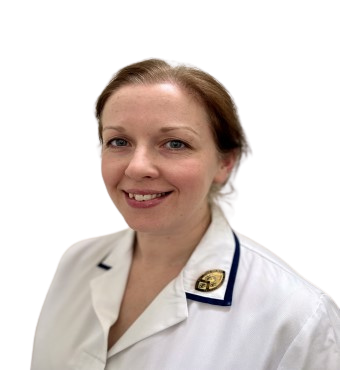
Ruth is an extended scope physiotherapist in the Foot & Ankle team at Southmead.
She shares why she moved into a research role and how she’s been supported to study and grow.
I’m currently in a newly created role
Day to day I will be responsible for seeing foot and ankle patients in clinics, service development, patient-reported outcome measures (PROMs) and assisting with any research studies we have running in that speciality.
I moved into a research role in trauma and orthopaedics in 2010
It gave me the opportunity to specialise in Trauma & Orthopaedics, which wasn’t possible clinically at that time as a physio. As someone who was constantly pushing to provide the best care I could and constantly asking what, where, why, and how, it was a perfect fit for me. My role was a two-year post and I ended up staying for more than 13 years.
Research gives me the opportunity to explore new treatments and interventions, which I enjoy
The ultimate goal is to provide improved patient outcomes and it’s satisfying doing research that has directly impacted how we treat patients. I feel I’m making a positive impact.
I was supported to complete a Masters in Research
This was an excellent learning opportunity to take me through all the stages of a research project. Ultimately to get a research project off the ground you need a good idea and to understand all the steps needed to make that project a reality. You need to surround yourself with a team who can support you in delivering the different aspects, which the R&D department can help with.
One of the most interesting studies I’ve worked on is about helping patients back to work after a serious injury
ROWTATE, Return to Work after Trauma, is led by Nottingham University. Rehabilitation studies do not come up often as they are notoriously difficult to get right. It’s an interesting study to me for a number of reasons. Any rehabilitation study is complicated to design and ensure a standardised, repeatable delivery. And the patient group we’re looking at don’t follow normal narrow inclusion criteria, but it could be anyone who works or is in education, with injuries that can be classed as ‘major’ trauma.
If you are considering a move into research I’d suggest doing your own ‘research’ into what sort of role you think would suit you most
There are many different types of research roles out there, such as managing research projects, writing grant applications, managing research teams and being part of a delivery team.
I personally feel you need to be in a speciality that you know and like to get full job satisfaction. We are lucky that a lot of secondments exist so people can try an area out and see if it is for them. It’s very different from all the clinical roles I have done.
I’m striving to incorporate clinical skills as part of everyday practice in my new role
I want it to become the norm and not an add on. I’ve managed to maintain my skills but I’ve had to work hard to do it.
Further information
- Careers in research and active vacancies at North Bristol NHS Trust
- Support for your research journey
- Our Current Research
